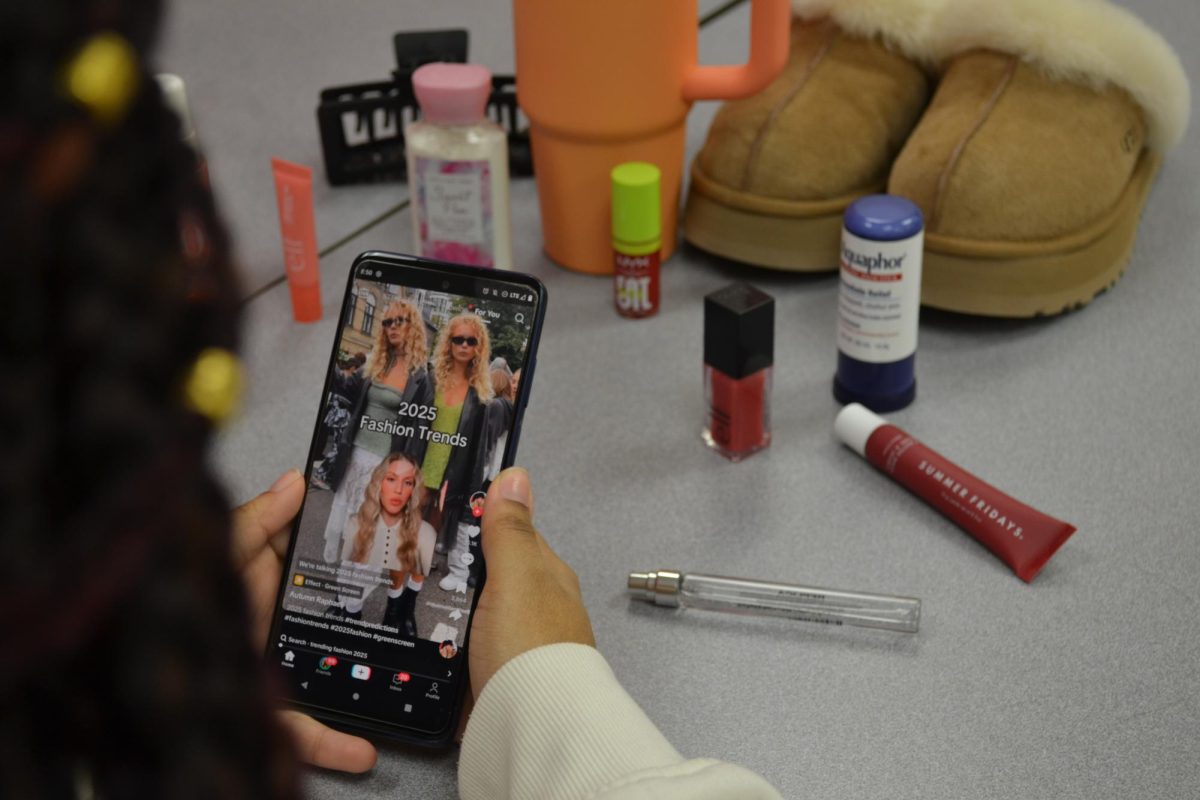The Strength Within You
An estimated 45% of teenagers and young adults struggle with low self-esteem. Why do so many of us have low confidence and what can we do to boost ours? If you struggle with low self-esteem, don’t worry. You are not alone. “Everyone struggles with confidence at some point in their life. If this is something that you are struggling with right now, know that you are not the only one and that it is never too late to do something that will help you feel better,” says Amanda DeCaire-Denk, an Education Specialist and Nationally Certified School Psychologist.
We Ourselves are Broken When We Have Low Self-Esteem Grant Community High School Freshmen, Carlos Mondragon
October 7, 2019
There are many factors that contribute to teens development of self-esteem. They need to know that their basic needs are met, such as food, drink, shelter, sleep, etc. They need to know that they are supported and loved by the people around them, and that they are safe to take reasonable chances while having help coping with the consequences. They should be able to explore new relationships with others and are welcomed to discuss their thoughts freely without being put down. When these aren’t met, confidence can not grow.
Teenagers also have trouble expessing, understanding and reacting to emotions. According to Deborah Yurgelun-Todd and a group of research scientists at the McLean Hospital in Belmont, Massachusetts teenagers use different parts of their brain to process the emotions they are trying to identify compared to the participating adults.
The group of 18 children ages 10 to 18 primarily used the amygdala when identifying the emotions. The amygdala is a small, almond shaped region that guides your brain to make decisions and differentiations based on a “gut” feeling. Unlike the teenagers, the adults relied on the frontal-cortex, which uses reason to make decisions.
Because of this, the group of adults correctly identified different facial expressions, meanwhile the group of teens didn’t. This makes interacting with adults harder for teenagers to do because the adults and teenagers aren’t understanding and processing the same things the same way. It leads to teenagers feeling like they can’t talk to adults because they “wouldn’t understand.”
Teenagers have a harder time communicating with others, which causes them to feel isolated. It contributes to teenagers using technology as their form of interaction, because it is easier than talking face to face with others.
But, because teenagers go on their technological devices as often as they do, they also get bullied more. It is easier for teenagers to bully others through online sources, which makes bullying rates rise.
Social media is also another reason why teens are experiencing such massive episodes of depression. In particular, Instagram is quite possibly the biggest culprit. According to a study from 2017 by the R oyal Society for Public Health of almost 1,500 teens and young adults, they found that although Instagram does promote self-expression and self-identity, it was also linked with depression, bullying, high levels of anxiety and a “fear of missing out.” Instagram is a social media network where people of all backgrounds can share what is going on in their lives, but it also only shows the “picture perfect” sides of life. Teenagers are more likely to feel that their life isn’t “as perfect” as everybody else’s, and as a result are more depressed.
There are several different ways that teenagers are more susceptible to falling into a spiral of low self esteem, isolation and depression. But, there are some things you can do to escape.
If you choose to work on your confidence, please pick one of these strategies that you feel would work best for you and try to implement it daily on a consistent basis for a few weeks, it is likely that you will start to feel better. If your chosen strategy isn’t working for you, select a different strategy and renew your commitment toward making a daily effort.
- Make a list of activities you enjoy: Write out a list of the activities you enjoy doing. Maybe it’s playing football, painting or playing minecraft with your best friends. Identify what you love doing and plan out time to do one every day.
- Surround yourself with supportive people: Look for people who will encourage you and care about you unconditionally. You want to be around people who have similar values as yourself, so that you can both thrive together.
- Think about what your talents are and find a way to infuse them into your daily life: Identify some of your talents and try to find a way to do them everyday. When you are doing something you are proud of yourself for being able to do, doing it more often helps you feel more confident in other activities as well.
- Start a journal: At the end of each day, write something that went well during the day, something you did well, something you would like to repeat or something positive you heard. Use this tool to increase your awareness of the positive.
- Challenge the negative thoughts that run through your mind: You are always going to be your worst critic, so when your brain thinks a negative thought about yourself, look for evidence to either confirm or contradict that thought. There is a high chance that you are judging yourself harder than you would others.
- Try new things: Never be afraid to try new things! As long as you’re safe, never hesitate to try something new. You could discover something you love to do! It can be as major or minor as you wish. Maybe you start to learn how to ice skate and it becomes your newest hobby. Or maybe you set yourself a goal to give a stranger a compliment every day. Either way, try to set a goal for yourself and never regret trying a new activity!
- Use your talents to help someone else: You want to try to use what you are good at to make someone else have a better life. Maybe you could play baseball with your cousin, start to crochet with the elderly in a nursing home or tutor elementary school students in reading. By doing so, you actively demonstrate your worth to others and, more importantly, yourself.
































